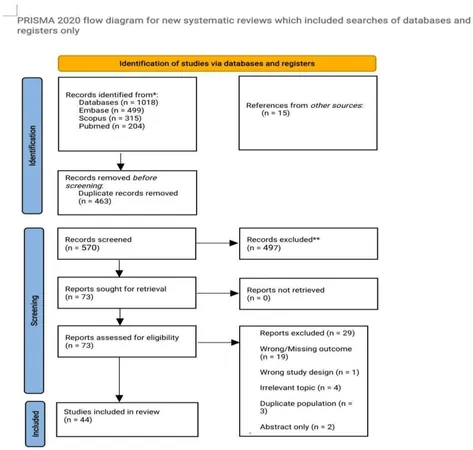
Dramatic Gender Disparities in Inflammatory Bowel Disease Outcomes Revealed: A Comprehensive Review
2024-11-23
Author: Li
The Study's Findings Unveiled
The researchers sifted through a staggering 1,018 studies, ultimately narrowing it down to 44 significant studies. The total patient cohort involved was extensive, with over 29,000 individuals, demonstrating a clear gender divide among patients with Crohn's Disease (CD) and Ulcerative Colitis (UC). The findings were eye-opening: men with IBD exhibited a higher mean age and a greater likelihood of being employed. However, they were also found to have a higher incidence of total deaths related to the disease and a greater need for surgical interventions.
Are Men More Likely To Die From IBD?
The data revealed a shocking 26% higher mortality rate in male IBD patients compared to females, indicating potentially more aggressive disease progression or complications in men. Interestingly, while overall surgery rates were higher in males, the geographical analysis showed variation, with men in Europe and Asia significantly more likely to undergo surgical procedures related to IBD.
Furthermore, the quality of life outcomes painted a contrasting picture—males reported a better quality of life compared to their female counterparts. This could be linked to the emotional and psychological burdens that females face, as they reported higher levels of anxiety and depression associated with their disease.
Why Are Women at a Greater Risk for Anxiety and Depression?
The study also highlighted that women grappling with IBD exhibited a troubling trend of increased anxiety and depression, with analysis showing a notable prevalence of these mental health challenges compared to men. Factors contributing to this disparity may include societal pressures, concerns about body image, and the impact of chronic illness on social functioning.
In fact, data indicated that women were more likely to experience gastrointestinal symptoms and many reported feeling a greater overall burden related to their disease, amplifying their psychological distress.
Gender Differences in Treatment: What’s Happening?
In terms of treatment, the usage of biologics—a category of medication essential for managing IBD—showed marginal differences between genders. Males were found to use biologics slightly more than females, but interestingly, prescriptions for the drug adalimumab were more common among women. Potential reasons for these variances could encompass differences in treatment adherence, perceived side effects, and health-seeking behaviors.
Is Hormonal Influence at Play?
The hormonal profiles of the patients could also be playing a crucial role in the disparities observed. With sex hormones significantly impacting the immune system and disease progression, understanding the biological underpinnings could be vital. Women diagnosed with IBD were found to have hormonal factors that could exacerbate their condition, while some evidence suggests that prior testosterone levels in men might influence the onset of CD.
The Call for Tailored Medical Approaches
Given these alarming differences, the authors of the study urge healthcare providers to consider sex-disparate outcomes when diagnosing and treating patients with IBD. Tailored treatment plans that address the unique physiological and psychological needs of both genders could help mitigate risks and improve overall patient outcomes.
Conclusion: What Lies Ahead?
The findings from this systematic review and meta-analysis are a rallying cry for the medical community. With men facing higher mortality and surgical rates and women coping with greater levels of anxiety and depression, there is an urgent need for an integrated approach to treatment that caters to the distinctive challenges each gender faces. As awareness grows, hopefully, tailored therapies and robust support systems will lead to better outcomes for everyone diagnosed with IBD.




 Brasil (PT)
Brasil (PT)
 Canada (EN)
Canada (EN)
 Chile (ES)
Chile (ES)
 España (ES)
España (ES)
 France (FR)
France (FR)
 Hong Kong (EN)
Hong Kong (EN)
 Italia (IT)
Italia (IT)
 日本 (JA)
日本 (JA)
 Magyarország (HU)
Magyarország (HU)
 Norge (NO)
Norge (NO)
 Polska (PL)
Polska (PL)
 Schweiz (DE)
Schweiz (DE)
 Singapore (EN)
Singapore (EN)
 Sverige (SV)
Sverige (SV)
 Suomi (FI)
Suomi (FI)
 Türkiye (TR)
Türkiye (TR)